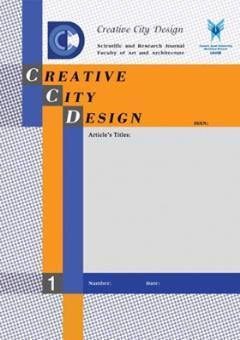Evaluation of Architectural Design Projects by Fuzzy Logic (Case Study: Residential Complex Design Project in the Islamic Azad University of Mashhad )
الموضوعات : Creative City Design
1 - Department of Architecture, Birjand Branch, Islamic Azad University, Birjand, Iran
الکلمات المفتاحية: Evaluation, Fuzzy, Uncertainty, Architectural Design Project,
ملخص المقالة :
After two decades, the evaluation system for architectural products has been suspended due to poor quality outputs. This research examines the evaluation structure of architecture students' design projects and aims to introduce a fuzzy system in architectural judgment. the study employs both quantitative and qualitative methods. In the quantitative part, data were analyzed using a fuzzy ranking system. The qualitative part involved content analysis and fuzzy output results to present a proposed arbitration model. A research questionnaire using a standard Likert scale was evaluated by all jury committee members. The sample size was determined by judgmental sampling, with 22 professors participating in the judgment.the top project scored 0.64, closely followed by other options. Proper physical-functional organization and attention to visual, cognitive, and climatic features were identified as crucial factors in scoring. The study revealed the importance of considering students' semester-long performance and attendance in the judgment process. Research highlights the complexity of evaluating architectural projects and proposes a fuzzy evaluation system to enhance assessment accuracy. The study found that top projects scored around 0.64, with proper organization and attention to various features being crucial factors. The implementation of a fuzzy ranking system provided a more nuanced assessment of student work.


